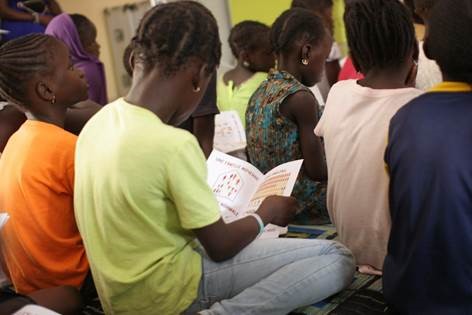The goal of the students’ research was to better understand how the girls’ sociological background, family structure and out of school activities have affected their academic success or have previously led them to abandon their education to support their families. By analyzing data trends, the group greatly contributed to Futur au Présent’s work, providing the organization with a clearer understanding of the girls’ situations so that it can improve and adapt its programming to better suit the community.
Not only was McKinley interested in developing her research skills through international fieldwork, she was particularly interested in this project because access to education is one of the highest priorities for human capital development, an important driver of economic growth. During her program, McKinley has become passionate about exploring the return on investment in education and the reasons why the long-term benefits of education to society are often undervalued. She has wanted to develop the tools to better understand the economic constraints that cause people to sacrifice their education, as well as the complexities and local realities of education for economic growth in developing countries.
However, McKinley says, “My favourite part about this international experience was that we were given the unique opportunity to be fully immersed in Senegalese culture by staying with our own host families.” This allowed the uOttawa students to build meaningful cross-cultural relationships, broaden their perspectives on developing countries, and experience the daily living conditions of locals in both rural and urban environments in the village of Mlomp and in the cities of Dakar and Ziguinchor.
“I love that I got to learn more about Senegal’s rich history and traditions through this hands-on experience, while also having the opportunity to appreciate some of the beautiful parts of West Africa that the media doesn’t often show us.”

